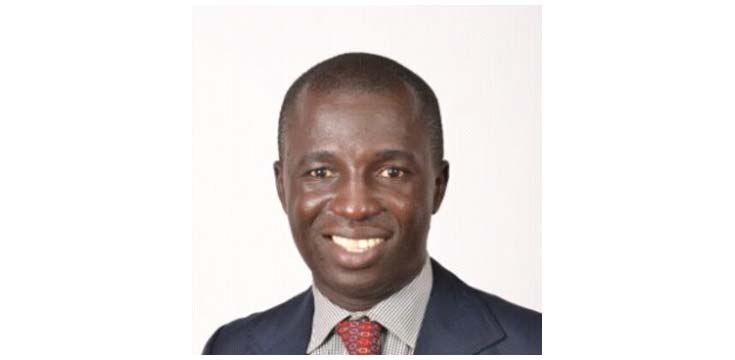INTERVIEW | Why EPA is disadvantageous to West Africa, favours Europe – Appiah Adomako
Appiah Adomako is the West Africa regional director for CUTS International, a research and public policy think tank that aims to build local, national and regional capacities of multiple stakeholders on issues around trade and competition.

What role can trade play in West Africa’s economic growth and what is CUTS International doing in terms of protecting the rights of consumers in trade processes across the sub-region?
Trade is very essential in West Africa because the livelihood of most people in the region depend on trade; from the farm where the farmer produce foodstuffs to when the aggregator goes to the farm to buy at the farm gate to take it to the market. So, there is a supply chain across which people are employed, therefore, trade is very important in terms of the livelihood of the people.
However, it is difficult trying to protect the rights of consumers in West Africa largely due to the absence of regulatory frameworks. In Ghana for example, we don’t have consumer protection laws as such businesses abuse consumer rights since they know they cannot be taken to court. If we are to have the laws in place, people can go to court to get them enforced.
Unfortunately, the Economic Community of West African States (ECOWAS) is more of an organization operating in silos in Abuja; its decisions don’t go anywhere. It is only when they want to levy exporters and importers that we get to hear from them. I therefore think we have not done much concerning the protection of the rights of consumers in West Africa; it has to start at the level of individual countries.
In Europe, for example, the European Union has a standard for everything and every country has to abide by it. However, in West Africa I have not heard of any ECOWAS standard regarding consumer protection so there are a whole lot of gaps when it comes to consumer protection in West Africa.
Are you saying ECOWAS is still not an ECOWAS of the People which it seeks to be?
I wouldn’t be hesitant to admit that ECOWAS is more of a club of Heads of State that meets in a plush hotel once every year and when they need money they kind of raise taxes to fund their operations but they don’t work to promote consumer rights; standards are only met for imported European goods. In Ghana, for example, if goods are imported from Europe there is a standard yet we still find inferior goods coming into our markets.
I think not much has been done concerning this and I blame this on weak regulatory institutions plus consumers themselves who are also not demanding for high standards. As such sometimes goods that are rejected in European markets find their way into our own markets. Some time ago I learnt that a certain country had a huge stock of frozen chickens which they didn’t want and someone said they could sell them in West Africa – Ghana, Nigeria and Togo.
So, about 30 containers of the frozen chicken were shipped here and we ate them, if they are not good for the Germans they are also not good for West Africans. Our challenge is that we don’t have the institutional strength to be able to produce those goods.
Some see the European Union’s Economic Partnership Agreement (EPA) with West Africa as not favoring the sub region; what do you make of the EPA?
I think the EPA is a one-sided agreement because the Europeans wrote the draft agreement and whoever provides a first draft will always have their way. Ideally, what ECOWAS ought to have done when the Europeans brought their draft was to have it rewritten to our own preferences and then use our own version to negotiate.
The Europeans were threatening us that if we didn’t sign it by a certain period of time, they would block our goods from their markets. Most countries were afraid of the implication of being blocked from the European markets. Ghana, for example, signed an interim agreement because most of our goods go to the European market, Cote d’Ivoire also did, and gradually other countries are also signing it.
Nigeria, the big brother, didn’t sign it because they can still do without the European market. What I think our leaders should be able to do is negotiate from the point of advantage. If someone brought you a draft agreement you don’t just sign it, instead you should give it to your experts to rewrite it into what will suit you and then give it back to them, and if they approve of your amendments you sign it.
Don’t always take their version and sign because it favors them, and you become a loser while they win. I think every agreement should be win-win unfortunately in the case of the EPA; it is more advantageous to the Europeans than to West Africa.









